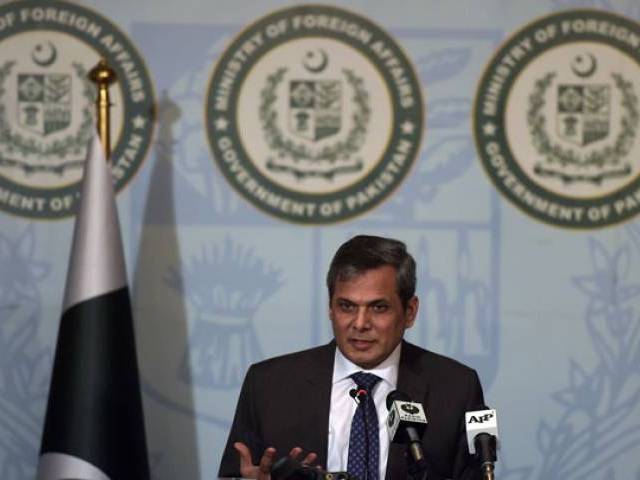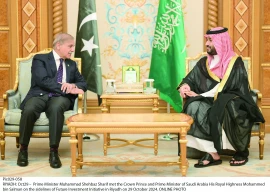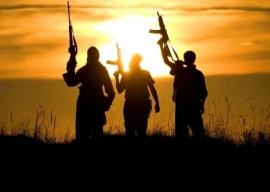
On December 4, Indian Prime Minister Narendra Modi made thinly-veiled references to Islamabad saying inaction against terrorism in the region would encourage terrorists and their facilitators. Afghan President Ashraf Ghani said, "We need to identify cross-border terrorism and a fund to combat terrorism."
During the weekly briefing, the spokesperson said India's stance also exposed its claims of being committed to peace in Afghanistan. The country misused a platform for promoting peace and stability in the war-torn country, he added.
India’s efforts to divide Afghanistan and Pakistan will not go very far: Sartaj
Regarding Ashraf Ghani's comments at the conference, Zakaria said Pakistan had been taking indiscriminate action against all terrorist groups. To substantiate his point, he highlighted the presence of various terrorist groups in Afghanistan in addition to the use of Afghan soil by Indian intelligence agency RAW for anti-Pakistan activities.
The spokesperson went on to add that eight senior commanders and leaders of the Haqqani Network, the Tehrik-e-Taliban Afghanistan, theTehrik-e-Taliban Pakistan and the Jamatul Ahrar had been killed in Afghanistan since July this year.
Hours after attending the Heart of Asia conference in Amritsar, Adviser to the prime minister on Foreign Affairs Sartaj Aziz said that India’s efforts to divide Afghanistan and Pakistan would not go far as “we are next-door neighbours”.
Aziz had also said that Afghanistan’s comments against Pakistan were regrettable but understandable because of the intensity of the insurgency in the war-torn country. “There is certain amount of anxiety which tells us why such comments came about,” he said.
By embracing India's anti-Pakistan policy, Kabul risks peace in Afghanistan
Pakistan cannot control terrorists without proper border management as there is always unchecked movement across the border, he added. “Afghanistan will have to do on their side as well as we cannot control people from operating inside Afghanistan,” the PM's adviser said.
Aziz was barred from speaking to media at his Amritsar hotel over ‘security reasons’. The adviser then decided to hold a press conference in another hotel but was denied permission. Pakistan's High Commissioner to India Abdul Basit was also not allowed to speak to media and security officials tried to stop some Pakistani journalists from approaching the diplomat.


1719660634-1/BeFunky-collage-nicole-(1)1719660634-1-165x106.webp)

1732276540-0/kim-(10)1732276540-0-165x106.webp)


1724249382-0/Untitled-(640-x-480-px)1724249382-0-270x192.webp)


1732270499-0/Express-Tribune-(7)1732270499-0-270x192.webp)






COMMENTS (2)
Comments are moderated and generally will be posted if they are on-topic and not abusive.
For more information, please see our Comments FAQ